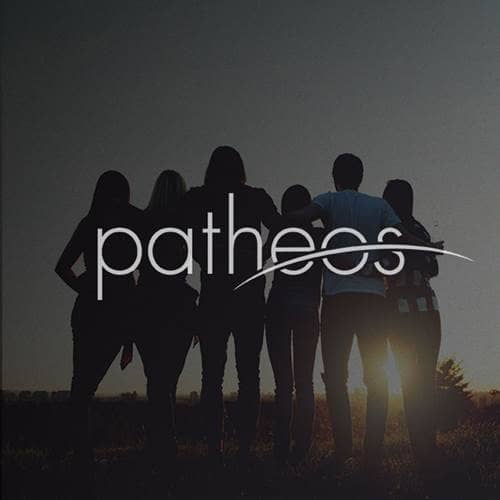- Trending:
- Pope Leo Xiv
- |
- Israel
- |
- Trump
- |
- Social Justice
- |
- Peace
- |
- Love

RELIGION LIBRARY
Scientology
Vision for Society
The Church of Scientology has crafted a vision of society free of war, crime, drug abuse, illiteracy, and the materialistic philosophy that modern psychology/psychiatry has fostered in the world. Church leaders believe that just as Scientology assists its members to rid themselves of the myriad problems that inhibit their day-to-day functioning, it should be possible to target specific problems (drug use, crime, illiteracy) that are undermining the fabric of society. Subsequently, individual Scientologists began to develop a set of specialized organizations to apply L. Ron Hubbard's wisdom to specific concerns. As these organizations proliferated, the church formed the Association for Better Living and Education (ABLE) in 1988 to coordinate, publicize, and inform church members and the general public of the various programs. ABLE has its own headquarters in Hollywood, part of the growing complex of facilities that have made Hollywood the administrative center of the church internationally.
Four structures associated with ABLE deal specifically with the problems of drug use, crime, illiteracy, and the declining moral fabric of society. Narconon, the oldest of the social service programs, can be traced to William Benitez, an inmate at the Arizona State Penitentiary, who benefited from Hubbard's Scientology: The Fundamentals of Thought. Applying Hubbard's ideas, he was finally able to free himself from drugs, the basis of his criminal activity, and soon concluded that Hubbard's teachings might also be relevant to his fellow prisoners. He was allowed to start a pilot program that he led during the several years left in his sentence. Its initial success won the prison administration's support for its continuance.
After leaving prison in 1970, Benitez settled in Los Angeles where, with the blessing of Hubbard, the church assisted him in establishing a non-profit corporation, open an office, and initiate a program in several correctional institutions modeled on the one in Arizona. Over the years, the Narconon organization redirected its primary efforts toward drug addiction within the general public and began opening residential facilities where individuals could finish the entire program in a supportive environment. At the same time the prison-oriented program continued to grow, and was reorganized as a separate organization, called Criminon. Meanwhile, Narconon centers have sprung up everywhere the church has built any strength.
Narconon gave birth to what has become a standard addition to Scientology's membership training, the Purification Program. It developed from the recognition that many church members have previously been drug users and almost all suffered from the cumulative effects of the large variety of questionable substances that now permeate western society. Hubbard came to believe that the accumulation of drugs and other toxins in the body was forming a crucial barrier to spiritual progress.
Scientology is a literate faith that requires the reading of numerous texts. Church members' difficulties in reading led Hubbard to develop manuals on such elementary topics as How to Learn and How to Study. Then, in the late 1960s, several public school teachers (who happened to be Scientologists) experimented with Hubbard's educational material in their classrooms. They established Applied Scholastics to expand the application of the study material in private and public school settings. Applied Scholastics, especially its programs aimed at the illiterate, has expanded internationally with affiliates currently functioning across North America and Europe, with outposts in Africa and Asia.
In the last years of his life, Hubbard authored what he saw as a basic moral code for the modern world that was presented as twenty-one precepts, to which he appended an explanatory essay. He termed this The Way to Happiness. In the 1980s, an informal effort by church members in Florida led to the formation of the Way to Happiness Foundation, which now oversees the translation of The Way to Happiness into different languages and coordinates its printing and distribution in mass quantities, especially targeted to influential community members, police officers, soldiers, and students.
Scientology's most controversial program for the improvement of society is not directly related to ABLE. It developed from the early antipathy that Hubbard had toward psychiatry in general, with a special animus toward procedures such as electric shock treatments, surgical operations such as lobotomies, and the use of mood-altering drugs. In 1969, the church established the Citizens Commission on Human Rights, which has since spearheaded a program to challenge experimental psychiatric treatments that may have violated patient rights, to ban mood-altering drugs (especially Valium, Ritalin, and Prozac), and to publicize cases of abusive and illegal behavior by psychiatrists.
Scientology has charged that psychiatry as a field has become permeated with criminality and has repeatedly aligned itself with governments who have used it as a tool for political suppression. Scientology also denounced psychiatry during the cult wars of the 1980s as supplying the main theoreticians of the now discarded idea of cultic brainwashing.
Finally, the Church of Scientology has seen itself, in some cases quite rightly, as the target of enemies dedicated to destroy it. In the 1960s, that belief led to efforts to clean files in various government agencies of false material critical of the church. Circulated overseas, such information had become an added obstacle to the international spread of the movement. Besides the efforts of the now defunct Guardian's Office, the church founded the National Commission on Law Enforcement and Social Justice (NCLE) in 1974. This organization has worked in parallel with the church to open government files and has had some success in forcing governments to open their files to public scrutiny (France, Canada, Australia, New Zealand, Italy, and Belgium). It also has published and widely disseminated a booklet informing the public on using the Freedom of Information Act to gain access to relevant United States government files.
Study Questions:
1. Is Scientology's vision for society more about the individual, or society as a whole? Explain.
2. What is ABLE? What work does it do within the community?
3. Who was William Benitez? What did he develop?
4. Why is Scientology against psychiatry?










